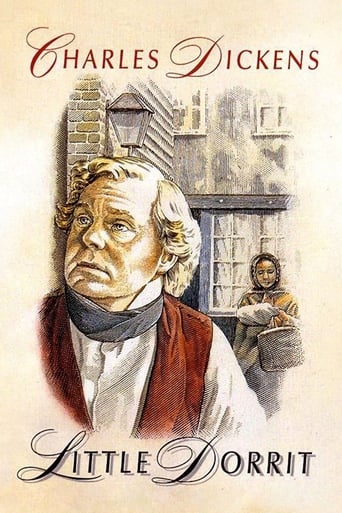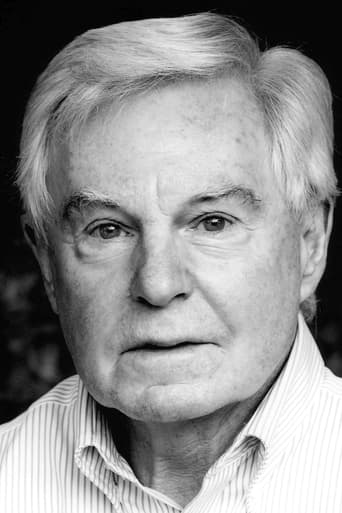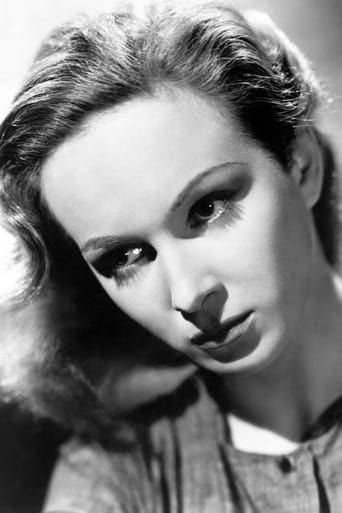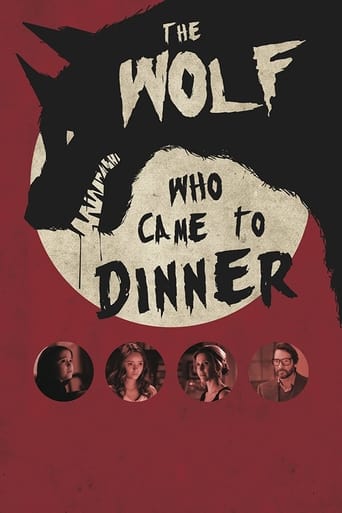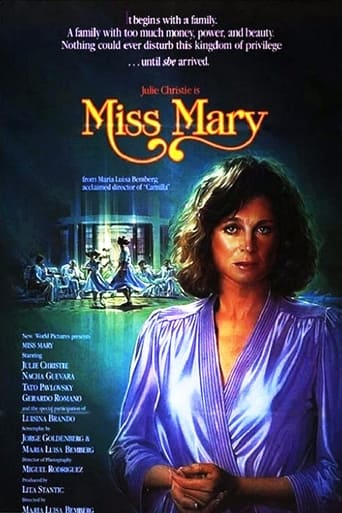Little Dorrit (1987)
A drama based on the novel by Charles Dickens which tells the story of Arthur Clennam who is thrown into a debtor's prison. There he meets a young seamstress whose father has been imprisoned for twenty-five years. A film in originally released in two parts.
Watch Trailer
Cast
Similar titles
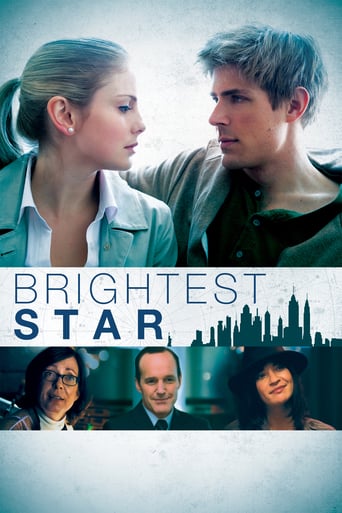
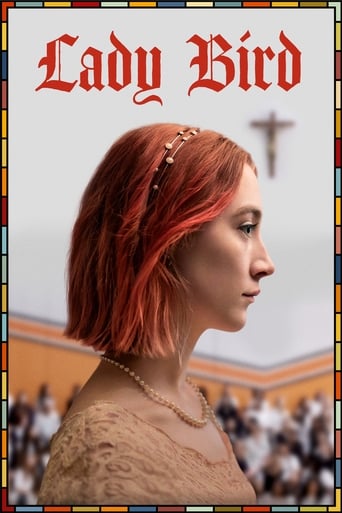
Reviews
Pretty Good
It is a performances centric movie
A movie that not only functions as a solid scarefest but a razor-sharp satire.
True to its essence, the characters remain on the same line and manage to entertain the viewer, each highlighting their own distinctive qualities or touches.
In addition to describing the progression of my regard for this film as I watched it, these are the names of the last three chapters of the book, a book which, as usual (with Dickens adaptations), the writers of this film had not read - or at least had not read recently enough.Most of the performances were fine. Alec Guinness was spot on, and the little woman playing Amy was perfect. At first I hated the Fanny performance - and then I remembered that I hated Fanny, so she was also perfect. Arthur could have been played with a little more enthusiasm, and without all the whispering. The actor playing Tip likely never went far. But all in all, the acting was acceptable.Where this film failed, and failed completely, was in the telling of the story: in the writing, directing and editing. First, of course, was the ludicrous vertical splitting of the film into two character-centric/perspective parts to be presented sequentially. This was a horrible idea on every conceivable level, but most importantly, it resulted in the disconnection of important elements of Arthur's story and Amy's story, that must play upon one another in order to build the drama and advance the story. These connections being brutally severed, the story and all of its intensity were lost.If that were not enough, there was so much more ill-advised meddling on the part of the writer and director, that it alone would have ruined the film - at least for readers. Anyone who has read even the cheat notes for Little Dorrit must have wondered and been dismayed at the absence of numerous important characters. Most notably, they must have asked, 'where is Rigaud?' This story can't be told without Rigaud! It is through this colorful and evil character, "with his nose coming down over his mustache, and his mustache going up under his nose," who is blackmailing Mrs Clennam, with the help of Flintwich, that Mrs. Clennam's secret is revealed, and his involvement is essential to the building suspense surrounding this secret - of which suspense, as a consequence of Rigaud's absence, there was not a trace in this film. And since there is no Rigaud it follows, perhaps, that there would be no Cavalleto, another uniquely Dickensian character who was sorely missed. Rigaud is also an important evil element among the Dorrits abroad, where he teams up with the dissipated Henry Gowan - who is also, sadly, never seen again in this film after he marries Pet.So little is made of the Meagles family, a major omission in itself, that I suppose it is no surprise that there is no Tattycoram, and since there is no Tatty, there is no Mrs. Wade: more great losses for the audience, since their highly charged and emotional subplot helps to define and humanize the characters of the Meagles family and of Arthur. Mrs. Wade of course also plays an important part in the Rigaud - Flintwich - Mrs. Clennam story.The Murdles are so overlooked in this telling, that one may wonder, when Mr Murdle shows up at Fanny and Sparkler's apartment to ask for a pen knife (with which he later commits suicide), who he is and where he came from at that point. Among other hard-felt losses stemming from this neglect, is the missed opportunity to engage in some of the fun that best exemplifies Dickens' sense of humour and satire. The parties at the Murdles, with all of the sycophants that are named only by their professions (Bar, Physician, Clergy etc.), and the head butler that terrorizes the great Mr. Murdle. All gone!Since there was no developing Rigaud blackmail subplot, readers knew well in advance that the end of the film would have to be substantially re-organized, and that it would be awful; and it was. Dickens version of the story behind Mrs. Clennam's secret is, of course, quite complex, but certainly worth accurately telling, since it is the motivation for the entire plot! But no! Now we are expected to accept the story that there is money in the house that Frederick had sent for Amy, and that Mrs. Clennam had held back? How absurd! Frederick has been in contact with Amy her whole life; so if he had money for Amy, he would have just given it to her. Of course the real story was this: Old Mrs. Clennam's father had forced her and Arthur's father into marriage, when Arthur's father was actually in love with another woman (Arthur's real mother, who lived with and was provided for by Frederick), an affair that when discovered by Mrs. Clennam, sent her into an old testament rage, in which she took the baby (Arthur)to raise and drove his real mother into an insane asylum and eventually into her grave. When Mrs. Clennam's father died, he felt remorse for what he had done, and left part of his estate to Arthurs real mother, or, if she was not living, to the youngest female kin (Amy!) of the real mother's caretaker (Frederick!). Yes, complicated, but not if it's told right.As much as this film was brutalized and its audience cheated by the cruel omissions and alterations in this story, which I have only highlighted here; it must also be noted that by dint of scandalously flawed directing and editing, what remained of the story managed to drag on miserably, with inordinately long pauses between lines, painfully slow pans to make small points,and long, lingering scenes in which nothing actually occurs.My recommendation: do not waste six hours watching this. In that much time you could be well into reading the actual book, which is terrific. Get the Penguin Classics version - it has all the original illustrations, wonderful, informative extras including very well done end notes. Will no one ever properly adapt a Dickens novel to film?
Having just seen the 2008 BBC version of "Little Dorrit," I was delighted that Turner Classic Movies was showing this 1988 version. But what a disappointment it proved to be.Comparatively, the '88 version is much...MUCH...duller.Instead of a roller-coaster ride of interesting characters, the '88 version is slow and plodding. The individual scenes never come to life.Sarah Pickering as Little Dorrit never engages one's interest. And while Derek Jacobi's Arthur Clennam may be closer to the book's description than Matthew Macfadyen from the BBC version, he and Sarah Pickering have no romantic chemistry.All in all, not an entertaining presentation.
A great novel, and a great movie. BUT! A few observations...I understand that the novel is very complex, that the plot turns in a number of layers, and that the film is already of great length. However I think it is seriously lacking to omit rather major elements and characters, such as the villain Blandois upon whom much of the plot turns. And I was disappointed as well to see Tattycoram (which would be such a delightful part for any actress!) left out. But these things aside, it is still a favourite movie which I've watched (on VHS) many times. The colourful characters are marvelously Dickensian as portrayed by the cast, most notably Guinness, Greenwood, Max Wall, Roshan Seth, and Jacobi. Has Sarah Pickering appeared in anything else? She was convincing in her character too. Though seventeen years old now, the film continues to delight and entertain, but I sure miss Blandois and Tattycoram!
This sprawling movie can take a lot of discipline to watch in its entirety, but it is worth seeing just for the performances of Derek Jacobi in the first half and Alec Guinness in the second. Jacobi is wonderful as the gentle, unlucky Arthur Clennam, who keeps finding that through nobody's fault, he keeps missing out on happiness. It is sweetly heartbreaking to follow his growing affection for Minnie Meagles, only to watch her throw herself away on a conceited young fool, whom even she seems to realize cannot equal Clennam in worth. Jacobi has a great actor's ability to tell a story without saying a word, as when he gently drops Minnie's roses into the river and watches them float away, and we realize he is saying goodbye to love. The scene later on in prison, when he discovers that he has missed his chance for love again, but this time it is he who all unaware has been the object of another's love, is breathtaking. Once again, without a word, Jacobi is able to portray his anguish and the chaos of memories and ideas that suddenly assail him, until he is almost suffocating, trapped and helpless in his little cell in the Marshalsea.The second half of the movie suffers from the absence of Jacobi, and I found myself eagerly looking forward to every chance appearance of his, but Alec Guinness also gives a fine performance as the indigent William Dorrit, whose sudden acquisition of a legacy not only frees him from debtor's prison, but also turns him into a heartless snob and social climber. Among the other performances in this film worth noting, is that of Miriam Margolyse as the aging coquette, Flora Finching, a kindly, ridiculous scatterbrain, talking nonstop while taking little nips out of the medicine bottle to keep up her spirits.
